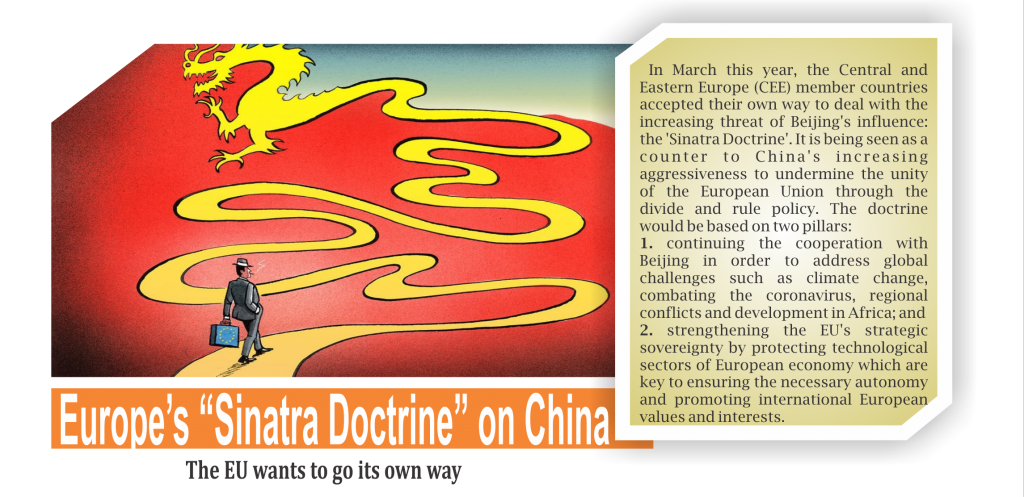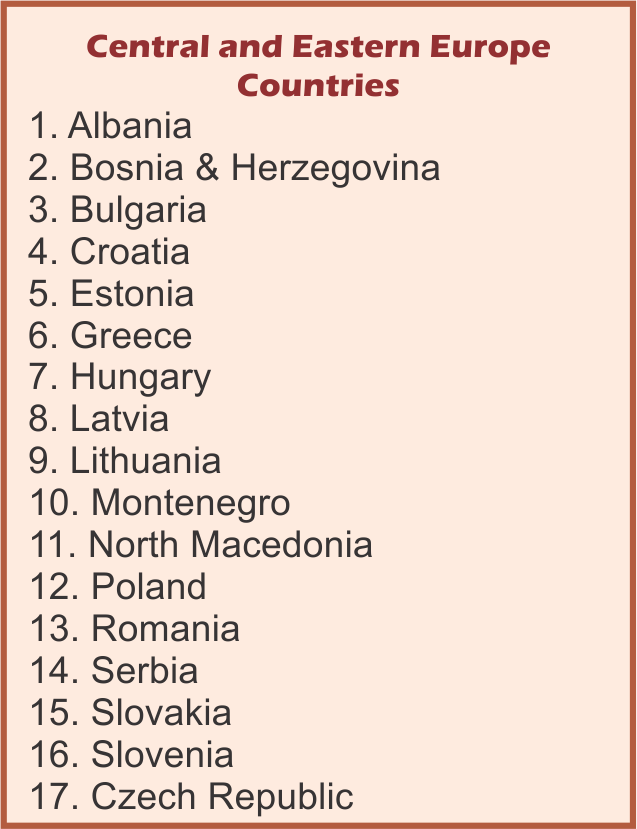Europe’s “Sinatra Doctrine” on China
The EU wants to go its own way
Backdrop
“When it comes to China, the primary concern of the EU and its members is to avoid being sucked into a superpower struggle between America and its geopolitical rival. For that, the EU has to develop its own independent position on China,” says Josep Borrell, the EU’s foreign-policy chief, who turned to a less frequently cited source of inspiration to explain the bloc’s policy on China: “We have to be like Frank Sinatra, no? ‘My way’.”
The Chinese policy to undermine the European unity was fuelled by leveraging the regional platform in order to get the political favours in exchange for economic benefits. However, the credit-based offer of China in a neo-colonial fashion was ill-suited for Central and Eastern Europe members of European Union. Further, the Chinese investments in 12 European Union member countries which were participating in “17+1 initiative” was approximately 8.6 billion euros in 2010 to 2019. On the flip side, Chinese investment in Finland for the same period was 12 billion euros, and in Netherlands, it was 10.2 billion euros. Thus, this mismatch between the economic promises and outcome by the China, made the Central and Eastern Europe members to adopt the Sinatra doctrine.
The Doctrine
The Sinatra doctrine was the name which the Soviet government of Mikhail Gorbachev used to describe their policy to allow the neighbouring Warsaw Pact (1955) states to determine their internal affairs. The name was taken from the song “My Way” which was popularized by Frank Sinatra — a famous American singer. The implementation of the doctrine was part of doctrine of new political thinking by Gorbachev.
What EU Foreign Policy Chief Says?
The Covid-19 pandemic has highlighted some of the weaknesses in the relationship between Europeans and the communist nation, as highlighted by Josep Borrell in the ‘Sinatra Doctrine’. According to Borrell, China’s aim is to transform the international order into a selective multilateral system with Chinese characteristics, in which economic and social rights would take precedence over political and civil rights. He calls the new Chinese foreign policy as the “wolf warrior diplomacy”. Under this approach, China is safeguarding its own interests, most notably by imposing tariffs on Australian exports and displaying its nuclear arsenal.
About 17+1 Initiative
The 17+1 initiative is a China-led format founded in 2012 in Budapest, Hungary, with an aim to expand cooperation between Beijing and the CEE member countries, with investments and trade for the development of the CEE region. The framework also focuses on infrastructure projects such as bridges, motorways, railway lines and modernisation of ports in the member states. The initiative includes 12 EU member states and 5 Balkan states — Albania, Bosnia and Herzegovina, Bulgaria, Croatia, Czech Republic, Estonia, Greece, Hungary, Latvia, Lithuania, Macedonia, Montenegro, Poland, Romania, Serbia, Slovakia and Slovenia. The platform is largely seen as an extension of China’s BRI.
China’s narrative towards the 17+1 initiative is about improving its relations with the European countries that are less developed as compared to the Western European states. Beijing was keen to construct an arrangement of interconnected relationship in the CEE region. China announced a $10 billion credit line for investments in Central and Eastern Europe back in 2012. China-CCE countries trade relations remained modest, leading to an increasing trade deficit since its inception.
 Jahangir's World Times First Comprehensive Magazine for students/teachers of competitive exams and general readers as well.
Jahangir's World Times First Comprehensive Magazine for students/teachers of competitive exams and general readers as well.




